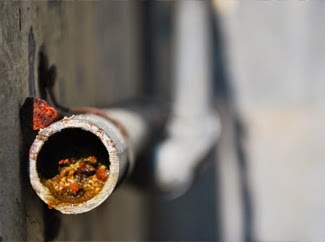
As your home’s HVAC system runs, it creates a lot of condensation. As it draws in air from inside your house and cools/dehumidifies it, moisture builds up on your coils. The system is designed to where that excessive water drips off the coils and into a drip pan underneath your system. As that pan fills with water, it flows into a PVC pipe drain line. From there, the condensation is channeled out through an open pipe next to your outdoor unit.
During the Summer, your system runs longer and much more frequently. (Thanks, Captain Obvious). Thus, it generates even more condensation than usual. Ideally, if you keep your system maintained, this won’t be too big of a problem. But, if you neglect it or lack the proper equipment to safeguard, you could be putting your home, your life, your equipment, and your health at serious risk.
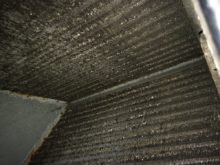
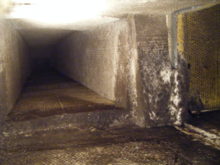
The more moisture present in your system, the better conditions it makes for mold to grow. Mold is commonly found on coils, in drain pans, and in ducts. It thrives where there is darkness, moisture, and food sources. If your coils are dirty, your system is likely already running inefficiently on top of the added run time Summer brings with it. Thus, it produces even more moisture for mold to thrive in. This is one of many reasons why it is crucial to have your system maintained twice per year. Regular maintenance entails cleaning your coils as well as sucking out your system’s drain lines. It’s a win-win-win for health, energy efficiency, and longevity of your system.
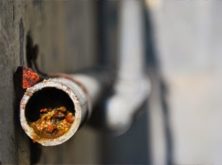
As we mentioned a minute ago, part of routine maintenance is to suck the drain lines out. The PVC lines that channel water from drain pan to the ground can become clogged with dirt, debris, organic material, dust, etc. When they do, the drain pan fills up, eventually leading to an overflow if left undetected.

If your air handler is in the attic, this means serious water damage to ceilings and drywall, or even a collapsed ceiling. If your equipment is located underneath your home, excessive moisture from AC condensation in the crawl space leads to the growth of mold, which is spread into your home as air blows in, which is a serious health hazard.
Clogged drain lines can also lead to systems freezing up, which will stop off your system, and potentially damage your compressor or coils.
There are ways to prevent all of this. The best way, as we have already mentioned several times, is to have regular preventative maintenance done. Most manufacturers require regular semiannual service in order to keep their warranties valid. We would be more than happy to come and take care of that for you. Just call us or contact us today and we will set you up with one of our friendly and knowledgeable service experts!
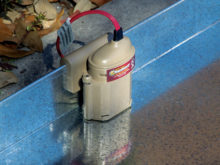


You can also have a float switch or condensate pump installed. Float switches are designed to trigger the system to shut off when the water causes the float to rise to a certain level. In doing so, it prevents the system from creating more condensation to put your ceiling, crawl space, and air quality at risk.
A condensate pump is like the vacuum the dentist uses to suck water and saliva out of your mouth. When water builds up to trigger the float, the pump kicks into action and sucks the moisture through a tube and spits it out through an outside drain line. If you lack any of these safeguards for your system, we can also install one for you. Just give us a call today for more info!
Lastly, you can have a dehumidifier and vapor barrier installed under your home if your system is underneath. Having these helps to cut down on moisture and the conditions needed for mold and other nasty things to thrive under your house. We can do that for you as well! Just give our experts a call!